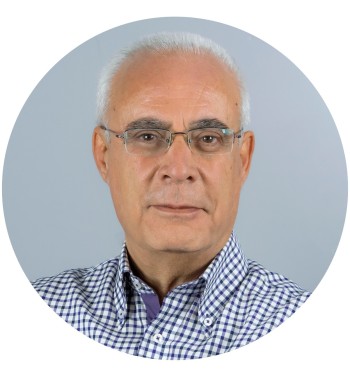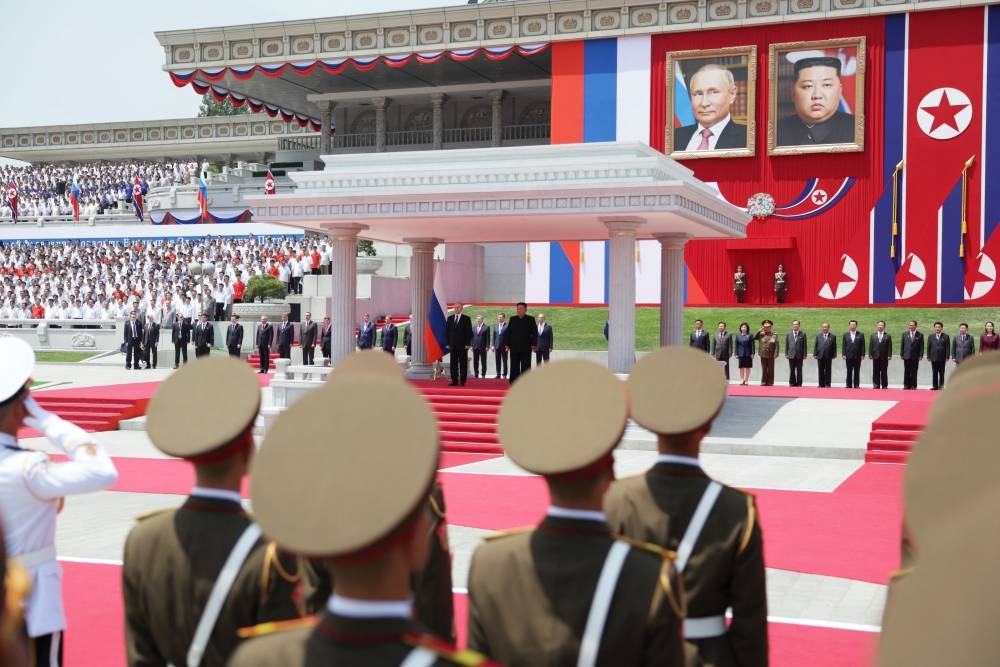In the midst of the third year of the war in Ukraine and facing growing Western support for Kyiv, Russian President Vladimir Putin is strengthening his strategic relations with China and Iran, while reviving Cold War alliances between the Soviet Union, North Korea, and Cuba. Putin's visit to Pyongyang on Tuesday and Wednesday is dictated by the circumstances of the Ukrainian conflict and the common hostility towards the West, particularly the United States. As North Korean leader Kim Jong Un opens his ammunition and short-range missile depots to Russia for use on the Ukrainian front, the Kremlin demonstrates its willingness to provide its neighbor with technologies to develop ballistic missiles and satellites.
Putin needs Kim on the ground, while Kim needs Putin in space. An equation that worries both enemies and friends. But Washington took the initiative by forcing its ally, South Korea, to send 155mm shells to Ukraine, eager for ammunition, in addition to economic aid, culminating with South Korean President Yoon Suk-yeol's visit to Kyiv last month. The same American desire pushed Japan to send military and economic aid to Ukraine.
Putin needs Kim on the ground, while Kim needs Putin in space. An equation that worries both enemies and friends.
So why wouldn't Putin respond to South Korean and Japanese support for Ukraine and Washington by reopening to North Korea, the enemy of Seoul, Tokyo, and the United States? A few days ago, Putin publicly promised to send weapons to all countries fighting America, in response to Washington's decision to allow the Ukrainian army to use American weapons to strike targets inside Russia in the Kharkiv region, and in response to the U.S.-Ukrainian security agreement signed by President Joe Biden and Ukrainian President Volodymyr Zelensky on the sidelines of the celebrations of the 80th anniversary of the Normandy landings during World War II.
Putin's first visit to Pyongyang dates back to 2000, making him the first Russian president to visit North Korea after the end of the Cold War. However, Russian-North Korean relations then declined, as Pyongyang pursued its nuclear armament program and development of its missile capabilities, and Moscow did not use its veto against the sanctions imposed by the United Nations Security Council on increasingly isolated North Korea.
Since the outbreak of the Russo-Ukrainian war, things have changed, and Moscow has begun to reorganize its international relations according to the needs of continuing the war. Nine months ago, Russia hosted Kim for an extended visit, including tours of Russian arms factories and an inspection of the Vostochny space center in the Russian Far East. Kim toasted the "sacred struggle" against the "gang of villains" in the West. This center particularly attracts the North Korean leader, who aspires to monitor his enemies from space, which he has not been able to accomplish alone. North Korea's last attempt in this area, carried out last month, ended in failure.
Last May, Russia used its veto against an American draft resolution to renew the mandate of the UN sanctions monitoring committee against North Korea. Russia began hosting North Korean workers in violation of a 2019 UN resolution prohibiting countries from recruiting workers from North Korea to prevent Pyongyang from benefiting from foreign currencies.
In exchange for what the United States estimates to be ten thousand containers of ammunition and short-range missiles shipped by North Korea to Russia, Moscow began sending quantities of oil exceeding the limits imposed by UN resolutions to Pyongyang, as well as large quantities of cereals and other food aid, while the first groups of Russian tourists arrived in North Korea at the beginning of the year when the country lifted restrictions imposed on foreigners due to the COVID-19 pandemic. Kim and his daughter were recently seen in a limousine made in Russia, defying another UN ban on such luxury items.
The signing of a comprehensive strategic partnership memorandum between Putin and Kim marked a turning point in relations between the two parties, prompting U.S. National Security Council spokesman John Kirby to warn of the repercussions of this development on "the security of the Korean Peninsula."
Ukrainian Foreign Minister Dmytro Kuleba took advantage of Putin's visit to North Korea to call on the international community to counter the close ties between Putin and Kim by increasing arms deliveries to Kyiv.
While the Russo-North Korean rapprochement worries Seoul, Tokyo, and Washington, China is watching it closely, wishing this alliance does not cross limits that could provoke it, such as Russia providing North Korea with long-range missile technologies, knowing that China has always been Pyongyang's gateway to the world, even in the most difficult circumstances.
Just before Putin's arrival in Pyongyang, the border between the two Koreas became tense when dozens of North Korean soldiers briefly crossed the demarcation line, while several North Koreans were injured in a landmine explosion during another simultaneous incident. Was it a coincidence or a message from the North to the South at such a symbolic moment?
Please post your comments on:
[email protected]
 Politics
Politics








